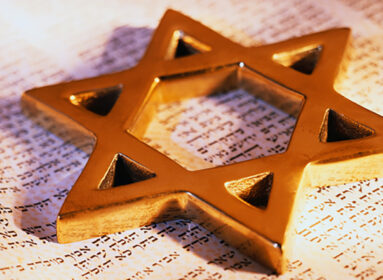
By Irene Frisch
I have lived through many Passovers and still recall them all – the cleaning, the cooking, the gathering, the singing, the eating, etc. In one of my earliest memories, I am a little girl in Poland, very excited about the coming Passover. At the time, my entire participation in the preparation consisted of being given new dresses and new shoes. It was customary in our little town to outfit children from head to toe. So every year, I went with my mother first to the dressmaker and then to the shoe store. It was always the same ritual. I would try the first pair of shoes and immediately claim they fit perfectly. I would refuse to try another pair. The shoes were usually too small, so by the first day of Passover I was already limping in my new shoes and would have to return home to change into my old shoes. The new shoes would subsequently be given to a less well-off family.
In my defense, at that time I was only eight years old. The comfortable, untroubled life I knew would come to an abrupt end when World War II began. After being expelled from our town, I ended up in hiding, first alone and then joined by my mother and sister. The kind, brave woman who offered us shelter was illiterate; we did not have access to a newspaper or a calendar. We did not know what month it was, or even what time of year it was.
One day, my mother announced that the next day was the start of Passover. I have no idea how she determined that date. I was still at an age when I accepted my mother’s statements at face value. So, we celebrated Passover. We had almost no money and lived entirely on bread and potatoes. So, for the next eight days, we ate potatoes three times a day, never touching bread.
After our liberation, it took some time until we returned to a normal life. Some 10 years later, my mother had passed away and I was living in Western Europe. At an international book fair, I met a Prince Charming – a young man with the bluest eyes in the world, tall and handsome, with impeccable manners. He was of a different faith from my own, yet I was young and in love and did not think much about the consequences. On my birthday, he sent me beautiful roses. His calling card was imprinted with his family crest. He was of European nobility. Even my father was impressed. After some courting, the young man proposed. I was ready to accept.
His mother wrote, inviting me to spend the Easter holiday in the family’s villa in Nice, France, to get acquainted. I accepted the invitation, excited at the prospect, and began to pack for the trip. Since I wanted to impress the mother, a very elegant lady, I asked my best friend, an Italian girl named Vittoria, to help me pack. After filling my suitcase with my most precious outfits, I packed a box of matzohs because Easter and Passover fell at the same time that year. Vittoria, who was not Jewish, asked with surprise, “What is that for?” “I never ate bread during Passover before and I do not intend to do so now,” I replied. Vittoria was appalled and said: “If you intend to spend your life with that fancy family eating matzoh during Easter, it will never work.” At that moment I remembered my late mother and her invented date of Passover. I realized my roots were very strong, stronger even than my romantic desires. I did not go to Nice.
Very soon afterward, I left Europe for America, where I met a Jewish prince: a young man with the bluest eyes in the world, tall and handsome, with impeccable manners. We celebrated Passover together in our household for nearly 50 years, until he passed away four years ago. To this day, I have never eaten bread during the holiday.
Irene Frisch lives in West Hartford.
Readers are invited to submit original work on a topic of their choosing to Kolot. Submissions should be sent to judiej@jewishledger.com.







 Southern New England Jewish Ledger
Southern New England Jewish Ledger














